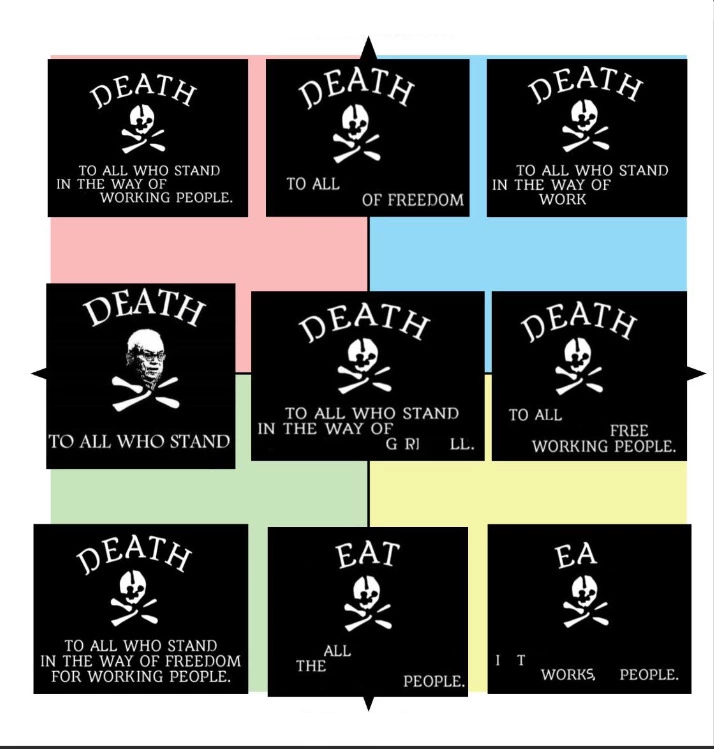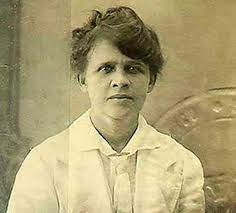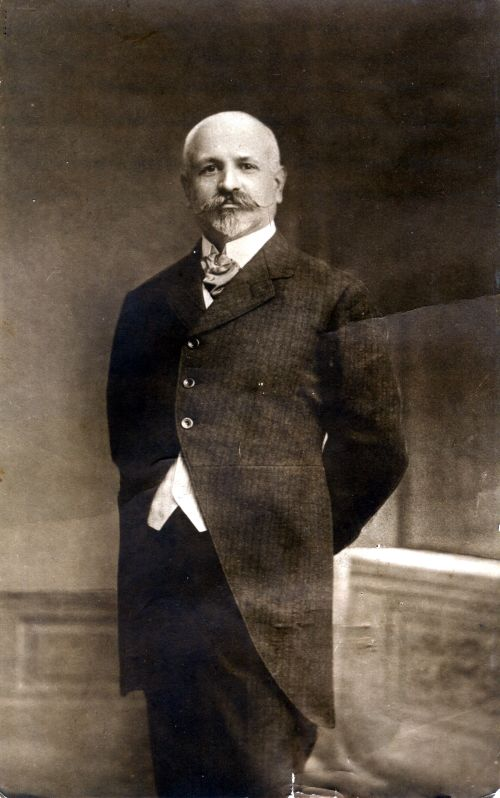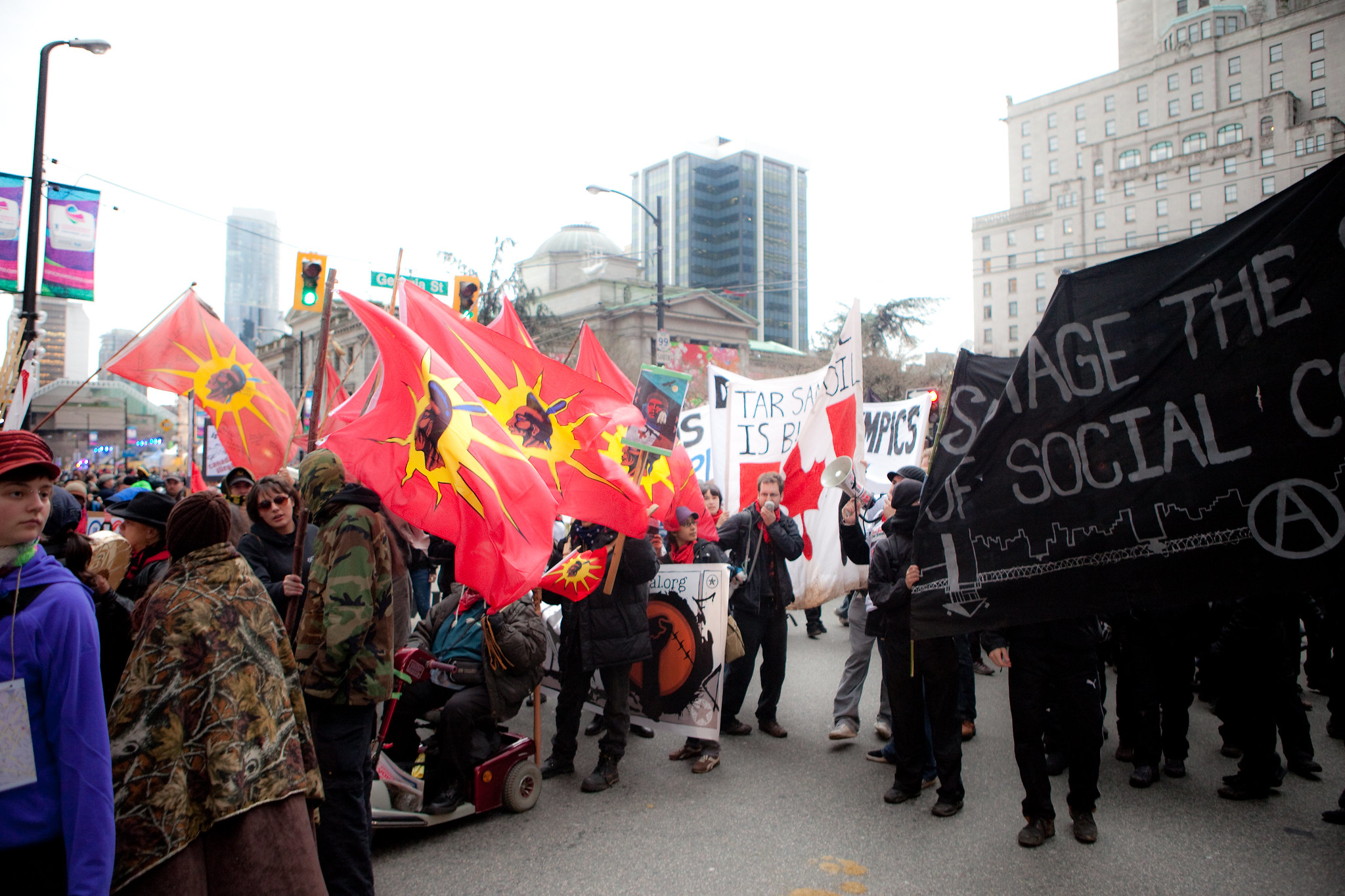Francisco Ferrer i Guàrdia (1859 - 1909) was a radical anarchist educator who was the founder of the Modern School and introduced pedagogical rationalism in Spain. Belonging to a well-to-do peasant family with Catholic roots, his academic training was self-taught. In 1873 he settled in Barcelona, where he worked in a trading house and was infected by the political atmosphere that at that time animated the Catalan cenacles. His free-thinking ideas soon led him to anarchism, a trend in which he developed a great activity as an agitator and revolutionary. In addition, he was always characterized by the vehemence with which he spread his anticlerical messages.
In 1878 he began to work as a conductor for the railway lines that linked Barcelona with France, which allowed him to become the courier that ensured the contact between the Spanish revolutionaries and the exiled president of the republican government Manuel Ruiz Zorrilla. In 1886 he participated in the attempt of a republican pronunciamiento in Santa Coloma de Farners, carried out by Brigadier Villacampa.
After the failed attempt, Ferrer i Guàrdia was able to evade justice and go into exile in Paris, where he discovered his pedagogical vocation and developed a brilliant career at the head of the secular school that he himself had founded, gaining international prestige as a free-thinking pedagogue and enemy of the obscurantism that dominated religious education in Spain at that time.
At the same time, he was in contact with the most prominent anarchist leaders of the time, such as Elisée Reclus, Charles Malato and Piotr Kropotkin, and was amassing a not diminished fortune that allowed him to lead a hectic love life -one more of the facets of his curious personality-.
Simultaneously, he nurtured from Paris a facet of revolutionary activist that, although it was not well considered by the most orthodox sectors of Spanish anarchism, materialized in the financial support he gave to the cause. In 1901, after receiving the inheritance left to him upon the death of Ernestine Mennier -a wealthy elderly Parisian woman to whom he had given Spanish classes since 1894-, he returned to Barcelona, where he settled and gave birth to some of his most ambitious projects. Thus, he created the Escuela Moderna, an institution from which he began to sow his fruitful secular and anticlerical seed, founded a publishing house closely linked to his educational project and was editor of the anarchist newspaper La Huelga General, work with which he contributed significantly to the strengthening of Catalan anarchist syndicalism.
His risky financial operations -he even speculated in the stock market- were not well regarded by the revolutionary anarchist rank and file, although the profits obtained by Ferrer i Guàrdia were used to finance some important armed actions such as the attack in Paris against Alfonso XIII (1905) and the frustrated regicide carried out by Mateo Morral -teacher of the Modern School of Barcelona- in Madrid on April 12, 1906.
After Morral's suicide, and the subsequent police investigation, Francisco Ferrer was declared an accomplice to the attempted regicide and subsequently arrested, but was released in 1907, as no conclusive evidence was gathered against him. The Modern School, however, was closed by government order in 1907, which encouraged him to undertake a tour of several European cities, in which he embodied the victims of the furious Spanish ecclesiastical power, already marked as a dangerous man for the central government, for his increasingly radical attitude.
He moved to Paris to collaborate, in union with several relevant anarchists (Malato, Laissant, Carlos Albert and Eugenio Fourniére) in the foundation of the Ligue Internationale pour l'educatión rationale de l'enfance. The primary objective of the league was to continue in Europe the pedagogical work begun in Barcelona by Ferrer i Guàrdia, for which it promoted the creation of an International Committee, chaired by Ferrer i Guàrdia himself, as well as the founding of a magazine, La Escuela Laica, which was cut from the same ideological cloth as his previous publications. Due to his gradual proximity to the revolutionary syndicalist elements in Barcelona, he gradually distanced himself from Alejandro Lerroux, head of the radical republicans.
In June 1909, on his return to Spain, he decided to organize a general strike in defense of the prisoners of Alcalá del Valle; but the call did not have the desired effect when Antonio Maura granted amnesty to the condemned. When in July of that same year the one that later would be known as Tragic Week broke out, Ferrer i Guàrdia was immediately linked to it, and he was even held responsible for the violent events that took place during those days, although he had remained all the time at his estate in Montgat.
Arrested by the Somatenistas and tried by a military tribunal, he was found guilty of being the material author of the burning of the convent of Premiá, and condemned to capital punishment, without the procedural guarantees or the evidence brought against him leaving an unquestionable feeling that justice had been done. In the political class, terrified by the virulence of those who had arrogated to themselves the right to exercise repression, no voice was raised to cry out against the condemnation of the exalted anarchist, not even among the circles of the official left, where Ferrer was considered the most responsible for the acts of which he was accused.
However, the international left asked Maura's government to commute the sentence, a plea that was constantly ignored. The really painful part of the trial was the multiple false testimonies and full of rancor poured against him by his political enemies, who saw the opportunity to get rid of a political adversary. At the trial, all those who could prove his innocence were barred from appearing and testifying.
Thus, at dawn on October 13, 1909, Francisco Ferrer i Guàrdia was led to the scaffold and viciously shot in the name of a legality so dubious that it had not even been able to guarantee the cleanliness of his prosecution. It is said that he demanded that he not be blindfolded, and that, shortly before hearing the voice of "fire!", he addressed the soldiers in the firing squad, ordered them to aim well, reminded them that they were killing an innocent man, and exclaimed: "Viva la Escuela Moderna" (Long live the Modern School).
The shameful trial and subsequent execution of Ferrer i Guàrdia motivated an international campaign of rallies and mobilizations in all the main European capitals that caught the Spanish government by surprise, causing such a crisis that its prime minister, Antonio Maura, was forced to resign, which led to his definitive withdrawal from active politics.
Ferrer i Guàrdia left many books and articles, including titles such as L'espagnol practique (1895), Enseigné par la methode Ferrer (1895), Los pecados capitales (1900), Cuento ateo (1900) and Ferrer y la Huelga General (1909). After his death, the following posthumous publications were published: The Modern School (1910), Posthumous Explanation (1910) and Scope of Rationalist Teaching (1910).
Megathreads and spaces to hang out:
reminders:
- 💚 You nerds can join specific comms to see posts about all sorts of topics
- 💙 Hexbear’s algorithm prioritizes comments over upbears
- 💜 Sorting by new you nerd
- 🌈 If you ever want to make your own megathread, you can reserve a spot here nerd
- 🐶 Join the unofficial Hexbear-adjacent Mastodon instance toots.matapacos.dog
Links To Resources (Aid and Theory):
Aid:
Theory:






